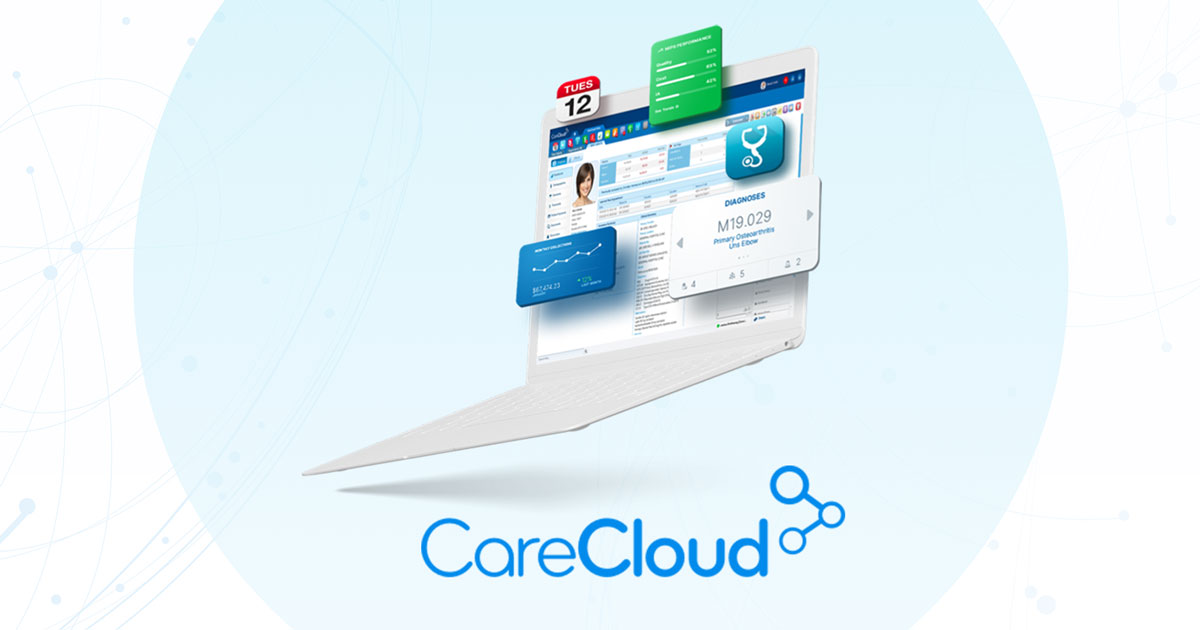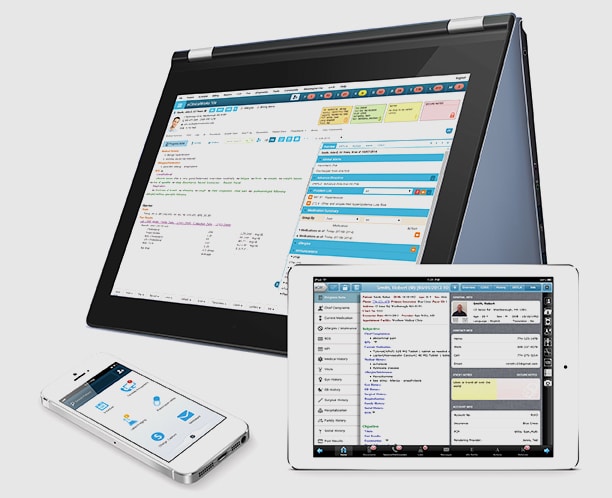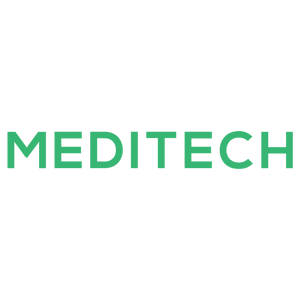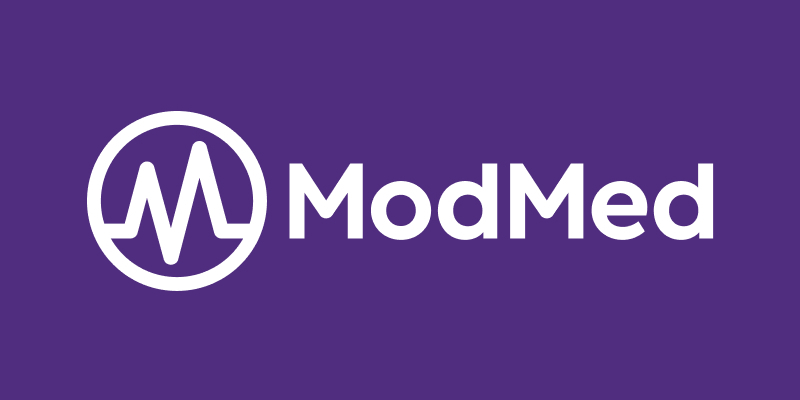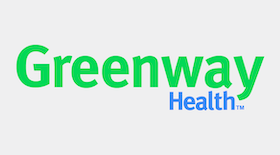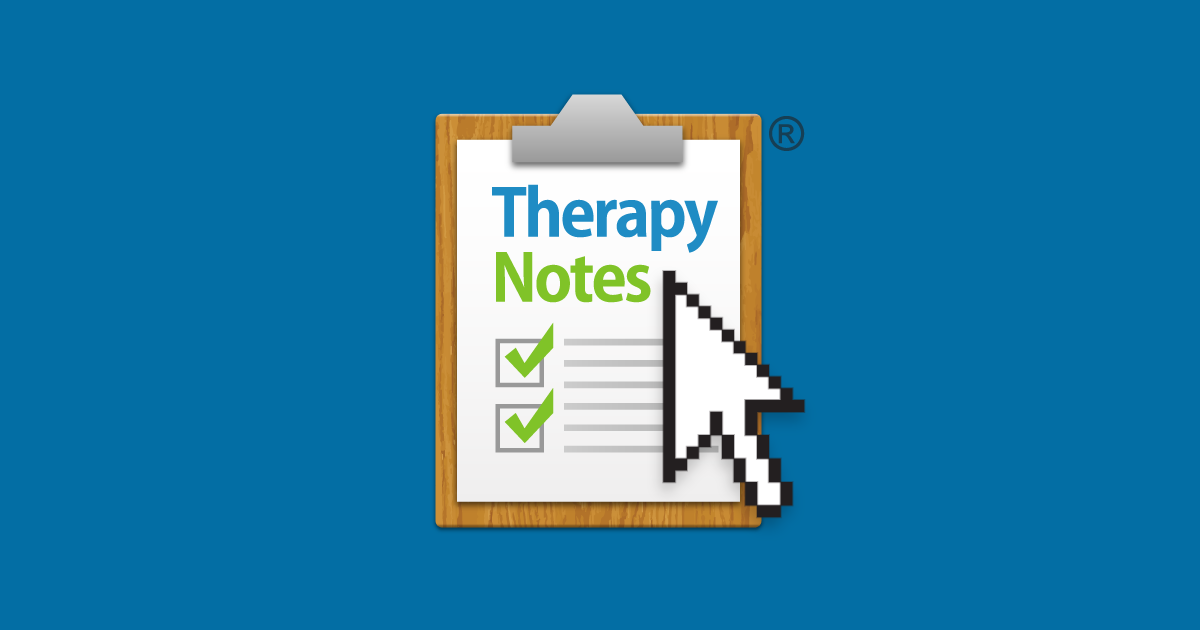Introduction
Selecting the right hospital management software is crucial for healthcare organizations to effectively manage clinical, financial and administrative operations while delivering quality patient care. With a vast array of solutions available in the market, it can be challenging to identify software that meets an organization’s unique needs and priorities. This article evaluates 15 leading hospital management platforms based on key attributes to help readers make an informed selection.
Methods of Evaluation
The hospital management software platforms are evaluated based on established criteria like clinical functionality, pricing and deployment options, customer base and industry reputation. Additional factors like number of backlinks, organic traffic and keyword search trends are also considered to gauge platform popularity and search interest. Platforms are reviewed based on target customer base, key features, implementation and support services. The evaluation aims to identify solutions best suited for different settings like large hospitals, physician practices, specialty providers etc.
1. Epic
Epic is one of the leading providers of hospital management software. Founded in 1979 and based in Wisconsin, Epic develops electronic health record, practice management and population health management software for hospitals and clinics. With the patient-centered approach of putting the patient at the heart of what they do, Epic aims to help people get well, help people stay well, and help future generations be healthier through innovative healthcare software.
Pros: Some key advantages of Epic include:
– Widely used in large hospitals and healthcare systems
– Offers integrated functionality across clinical, revenue cycle and admin modules
– Continuous innovation with new features and modules on a regular basis
– Configurable to meet the unique needs of different organizations
Cons: One potential disadvantage is the large upfront cost and long implementation timelines for a comprehensive Epic system, which can be a challenge for smaller organizations to budget for.
Pricing: Epic pricing varies significantly depending on the size and needs of the organization, modules selected, and implementation requirements. Generally, the upfront licenses and first year maintenance are in the millions, with ongoing annual maintenance in the high six or low seven figures for a major hospital system implementation.
Some key stats about Epic include:
– Used by over 250 million patients globally
– Installed in more than 2500 hospitals and 7500 clinics
– Handles over 1 billion patient visits per year
2. Cerner
Cerner is a leading provider of healthcare information technology solutions and services. Founded in 1979 and headquartered in North Kansas City, Missouri, Cerner’s solutions and services include clinical, financial and administrative information systems that help care organizations around the world. Cerner serves over 27,000 facilities worldwide including all US Department of Defense Medical facilities and VA Medical Centers.
Pros: Some key advantages of Cerner’s hospital management software include:
– Strong presence in large academic medical centers and integrated delivery networks
– Wide range of clinical, financial and admin modules to support all care delivery functions
– Excellent support and implementation services to ensure a smooth roll-out and adoption
Cons: One potential disadvantage is the software requires a significant investment of time and resources for implementation and customization to specific organizational needs.
Pricing: Pricing for Cerner’s hospital management software depends on the size and needs of the organization. Implementation and customization services also impact the overall cost. Cerner offers several pricing models including perpetual licenses, annual/multi-year subscriptions and Software as a Service (SaaS).
Some key stats about Cerner include:
– Serving over 27,000 facilities worldwide
– Provides solutions to all US Department of Defense Medical facilities and VA Medical Centers
– Over $5.8 billion in revenues in 2021
3. NextGen Healthcare
NextGen Healthcare is a leading provider of ambulatory-focused healthcare software and services. Founded in 1974, NextGen offers a fully-integrated platform that includes electronic health records (EHR), practice management, and revenue cycle management solutions to help practices and health systems deliver the highest quality of care. With over 270,000 providers utilizing its solutions, NextGen Healthcare aims to transform healthcare through connected clinical care, optimization of financial performance and driving population health.
Pros: Some key advantages of NextGen Healthcare solutions include:
– Comprehensive clinical, financial and administrative solutions in a single integrated platform
– Strong market presence in ambulatory, acute and post-acute care settings
– Emphasis on analytics, connectivity and population health management
– Integrations with various third-party solutions and devices
Cons: A potential disadvantage is that as a larger and more established vendor, the software may not be as nimble or customizable compared to smaller, niche providers.
Pricing: NextGen Healthcare offers different pricing models depending on the solution, configuration and number of users required. Pricing is available on request and customizable quotes can be obtained on the vendor website.
Some key stats about NextGen Healthcare include:
– Over 270,000 healthcare providers and organizations use NextGen solutions
– Serve over 500 million patients globally
– Process over 2 billion claims per year
– Over 45 years of experience in healthcare IT
4. Allscripts
Allscripts is a leading healthcare IT company that provides clinical, financial and administrative solutions to medical facilities and practices. Founded in 1986 and headquartered in Chicago, Illinois, Allscripts solutions are used by over 180,000 physicians and over 2,500 hospitals and health systems worldwide.
Pros: Key advantages of Allscripts solutions include:
– Provides integrated clinical, financial and administrative capabilities in a single platform
– Focuses on usability and the clinician experience to enhance workflow
– Offers specialty specific solutions for hospitals, primary care and specialty practices
Cons: One potential disadvantage is that Allscripts solutions require significant investment and resources to implement due to their breadth and depth. This makes them better suited for large healthcare organizations over smaller practices.
Pricing: Allscripts pricing varies depending on the specific solutions, modules, customizations and ongoing services needed. However, in general their solutions are priced annually based on facility size and number of providers/clinicians using the system.
Some key stats about Allscripts include:
– Used by over 180,000 physicians globally
– Serves over 2,500 hospitals and health systems globally
– Provides solutions to over 30% of U.S. hospitals
– Strong market presence in physician practices and specialty hospitals
5. CareCloud
CareCloud provides a comprehensive cloud-based EHR and practice management solution designed specifically for specialty medical practices. Founded in 2005, CareCloud helps over 30,000 healthcare providers work more efficiently through its fully-integrated software and services. Its modern platform aims to simplify workflows and improve patient and financial outcomes for practices of all sizes.
Pros: Some key advantages of CareCloud include:
– Deep specialization in specific medical specialties like cardiology or orthopedics
– Emphasis on an intuitive user experience through its modern, cloud-based platform
– Comprehensive solution that combines EHR, practice management, billing, and revenue cycle management
– Dedicated client services and support team to assist with onboarding, training, and ongoing needs
Cons: A potential disadvantage is that as a specialty-focused EHR, it may not be as comprehensive an option for primary care or multi-specialty practices that see a wide range of cases.
Pricing: CareCloud offers flexible pricing plans tailored to practice needs. Pricing generally starts at $149 per provider per month for its basic EHR-only plan. Its full-featured solution adds additional monthly fees for modules like practice management, patient engagement, and medical billing services.
Some key stats about CareCloud include:
– Over 30,000 medical providers trust CareCloud’s software
– Focused on specialty medical fields like cardiology, orthopedics, and radiology
– Integrates with over 50 medical billing companies for seamless claims processing
– Offers telehealth capabilities to enable virtual visits
6. WebPT
WebPT is a leading cloud-based physical therapy software and electronic medical records (EMR) system. Founded in 2001, WebPT is solely focused on the physical therapy, occupational therapy, and speech therapy markets. Their software provides a comprehensive HIPAA-compliant platform for documentation, billing, scheduling, and various other clinical and business functions specific to rehabilitation therapy practices.
Pros: Some key advantages of WebPT include:
– Therapy focused platform built specifically for PT, OT and SLP practices
– Cloud-based software-as-a-service (SaaS) model with no IT infrastructure required
– Flexible and customizable documentation templates
– Robust client engagement tools including online booking and telehealth
– Integrated billing and financial management to streamline workflows
Cons: A potential disadvantage is that as a specialty software, it may not be as flexible for other types of medical practices outside of physical, occupational and speech therapy.
Pricing: WebPT offers several subscription tiers for their software starting at $99 per month for a single clinician. Pricing scales based on the number of clinicians with additional seats available for $49 per month. They also offer various implementation, onboarding, and support packages to assist with setup and training.
Some key stats about WebPT include:
– Used by over 50,000 clinicians at more than 10,000 provider locations
– Serves physical therapists, occupational therapists, and speech therapists
– Features a fully- integrated EMR, practice management, and client engagement suite
– Specializes in workflows and tools specific to PT, OT, and SLP
7. eClinicalWorks
eClinicalWorks is one of the largest providers of cloud-based electronic health records (EHR) software in the United States. Founded in 1998, eClinicalWorks serves over 150,000 healthcare providers at both large hospitals and small private practices. Their flagship product is an ambulatory EHR solution designed to optimize workflows and maximize efficiency in outpatient clinical settings.
Pros: Some of the key advantages of eClinicalWorks include:
– Cloud-based solution allows for anytime, anywhere access from any device.
– Focus on usability with optimization of workflows and tasks to minimize clicks.
– Integrated speech recognition capabilities for documentation and workflow automation.
– Comprehensive set of practice management tools for tasks like billing, scheduling and reporting.
– Customizable templates and forms to suit the needs of different specialties.
Cons: The key disadvantage is that the interface may feel slightly outdated or ‘clunky’ to some users compared to modern, sleek EHR designs from competitors. However, eClinicalWorks focuses more on functionality over flashy design.
Pricing: Pricing for eClinicalWorks varies depending on the specific needs and size of the practice but typical pricing models include:
– Per provider per month subscriptions starting around $100/provider/month.
– One-time setup fees ranging from $2,000 to $10,000 depending on the size of implementation.
– Add-on modules available for features like telehealth, patient portal access, etc.
Some key stats about eClinicalWorks include:
– Over 150,000 active providers currently use eClinicalWorks EHR software.
– eClinicalWorks has a particularly strong presence among independent physician practices as its software is optimized for smaller practices and solo providers.
– The company has been named a ‘Leader’ in both the IDC MarketScape reports for US Ambulatory EHR and Medical Practice Management solutions.
8. DrChrono
DrChrono is a leader in ambulatory EHR and practice management software. Founded in 2010, DrChrono offers a fully integrated cloud-based solution that allows practices to go paperless and streamline workflows. With a focus on user-friendliness and connectivity, DrChrono equips practices to deliver quality care.
Pros: Some key advantages of DrChrono include:
– Integrated cloud-based EHR and PM solution allows practices to use one unified system
– Special focus on workflows in ambulatory settings like primary care, specialty, and women’s health
– User-friendly interface designed with physicians and staff in mind
– Strong app ecosystem including patient portal, telehealth, and medical billing apps
Cons: One potential disadvantage is that customization options may be more limited compared to on-premise solutions.
Pricing: Pricing for DrChrono starts at $99/physician/month for the basic EHR package. Additional modules like PM, RCM services, and telehealth integrate with pricing tiers starting at $149/physician/month.
Some key stats about DrChrono include:
– More than 25,000 medical providers trust DrChrono
– Solutions deployed in all 50 US states
– Over 120 million patient records in the DrChrono system
9. PointClickCare
PointClickCare is a leading cloud-based healthcare software provider that offers a comprehensive long-term care electronic health record (EHR) solution. Founded in 2001, PointClickCare supports over 30,000 facilities and serves more than 2 million patients across skilled nursing, assisted living and home care settings.
Pros: Some key advantages of PointClickCare’s platform include:
– Comprehensive long-term care EHR solution that covers the clinical, financial and operational needs of skilled nursing facilities, assisted living communities and home healthcare agencies.
– Strong focus on clinical documentation, assessments and automating workflows to simplify compliance and drive better clinical outcomes.
– Ability to manage patients across multiple care settings from skilled nursing to assisted living to home care on a single platform.
Cons: One potential disadvantage is that as a larger, more comprehensive long-term care EHR solution, PointClickCare may be more expensive than some smaller, more specialized competitors. However, it aims to provide value through its breadth of features and abilities to manage an organization’s clinical, financial and operational needs on one platform.
Pricing: PointClickCare offers monthly subscription pricing based on facility size and services. Pricing packages typically range from around $70-150+ per licensed bed per month. An implementation and services package is also required which can range from $50,000-150,000 or more depending on the size and specific needs of the organization.
Some key stats about PointClickCare include:
– More than 30,000 long-term care facilities worldwide use PointClickCare’s platform.
– PointClickCare’s platform supports over 2 million patients across various long-term care settings.
– PointClickCare has a strong focus on clinical documentation and automating clinical workflows to simplify compliance and drive better resident outcomes.
10. Meditech
Meditech is a leading provider of hospital information systems, with their electronic health record (EHR) software being used in over 2,300 healthcare institutions worldwide. Founded in 1969 and headquartered in Westwood, MA, Meditech prides itself on offering integrated clinical, financial and operational solutions that are affordable and tailored to the needs of community hospitals.
Pros: Some of the key advantages of Meditech’s EHR software include:
– Flexible and customizable platform tailored for community hospitals
– Integrated modules for clinical, revenue cycle and supply chain management
– Affordable pricing relative to other large vendors
– Strong reputation and experience catering to smaller facilities
Cons: A potential disadvantage is that as Meditech targets smaller facilities, some of the features may not be as sophisticated as those offered by larger EHR vendors focusing on larger academic medical centers.
Pricing: Meditech offers flexible pricing models depending on the needed modules and services. However, in general their pricing is considered to be quite affordable relative to larger competitors, being a good fit for smaller community hospitals seeking an all-in-one solution.
Some key stats about Meditech’s EHR software include:
– Used in over 2,300 healthcare facilities worldwide
– Focused on smaller to mid-sized community hospitals
– Over 50 years of experience in the hospital IT space
– Integrated platform covering clinical, financial and operational functions
11. Modernizing Medicine
Modernizing Medicine is a leading provider of specialty-specific cloud-based EHR solutions focused on dermatology, ophthalmology and plastic surgery. Founded in 2010, Modernizing Medicine develops technology specifically designed by specialty physicians to optimize workflows and drive improved patient outcomes. Their solutions include fully integrated EHR, practice management, billing and revenue cycle management, and customized reporting and analytics.
Pros: Some key advantages of Modernizing Medicine’s hospital management software include:
– Cloud-based specialty-specific solutions tailored for dermatology, ophthalmology and plastic surgery workflows.
– Strong focus on usability and functionality to streamline documentation and optimize clinical processes.
– Comprehensive analytics and reporting tools to benchmark performance and monitor KPIs.
Cons: A potential disadvantage is that their solutions are targeted at specialty-specific use cases rather than being a general, multi-specialty EHR.
Pricing: Modernizing Medicine offers flexible pricing plans tailored to practice needs starting at $99/provider/month for their dermatology and ophthalmology solutions.
Some key stats about Modernizing Medicine include:
– Over 2,500 dermatology, ophthalmology and plastic surgery practices currently use their EHR solutions.
– Over 30 million patient encounters have been documented using their systems.
– Their solutions are designed for use on any device including laptops, tablets and smartphones.
12. DrFirst
DrFirst is a leading healthcare technology company that provides clinical platforms for e-prescribing and medication management. Founded in 1998, DrFirst’s solutions help healthcare professionals make informed decisions by delivering accurate medication data directly to providers.
Pros: Some key advantages of DrFirst’s solutions include:
– Strong focus on medication reconciliation and adherence tools to reduce patient risk.
– Emphasis on interoperability and connectivity to facilitate real-time sharing of patient health data.
– Clinical platforms that support e-prescribing and medication management workflows seamlessly.
Cons: A potential disadvantage is that as a larger, more established company,DrFirst’s solutions may not be as customizable or configurable compared to newer, smaller healthcare tech startups.
Pricing: DrFirst offers flexible pricing models depending on the specific solutions and services needed. Pricing is typically per provider or per connected facility on an annual subscription basis. Contact their sales team for a customized quote.
Some key stats about DrFirst include:
– Over 50,000 actively-engaged healthcare providers use their solutions daily.
– Coverage of over 1 billion lives through their network partners.
– Integrations with over 95 electronic health records systems.
13. Greenway Health
Greenway Health provides hospital management software solutions to providers through its PrimeSuite platform. PrimeSuite offers clinical, financial and administrative modules on a single database to help streamline workflows and improve care coordination. Some key specialities include ambulatory EHR, practice management, billing and revenue cycle management.
Pros: Some key advantages of Greenway Health’s PrimeSuite include:
– Comprehensive software suite that supports both inpatient and outpatient settings
– Flexible workflows tailored for different specialities like OB/GYN and pediatrics
– Integration with many ancillary systems like labs, imaging and pharmacy
– Customizable templates and tools to improve documentation
Cons: Potential disadvantages include:
– Higher costs compared to some open-source or lower-cost competitors
– Steep learning curve to master all of the software’s capabilities
– Support may be slower for smaller or rural provider organizations
Pricing: Greenway Health offers flexible pricing models including annual subscriptions, three-year commitments and perpetual licenses. Additional fees apply for customization, support, interfaces and add-on modules. Request a quote on the company’s website for customized pricing based on your organization’s size and needs.
Some key stats about Greenway Health and its PrimeSuite platform include:
– Over 25 years of experience in healthcare IT
– Used by more than 500,000 providers
– Connects with over 90 data sources for seamless interoperability
– Cloud, on-premise and hybrid deployment options
14. TherapyNotes
TherapyNotes is a cloud-based EHR/EMR and practice management solution designed specifically for physical therapy, occupational therapy, and behavioral health professionals. Founded in 2003, TherapyNotes helps over 30,000 practices streamline documentation, billing, scheduling, and other business operations.
Pros: Key advantages of TherapyNotes include: – Intuitive interface tailored for rehab disciplines – Templated note templates to simplify documentation – Cloud storage removes need to backup or sync between devices – Calendar booking and scheduling capabilities – Billing module handles insurance submissions and claims
Cons: A potential disadvantage is that as a specialized solution, it may not be as full-featured for other medical specialties compared to larger EHR vendors.
Pricing: TherapyNotes offers several pricing tiers to fit different practice sizes and needs starting from $79/month for a single clinician. Additional charges apply for add-ons like billing and credentialing services.
Some key stats about TherapyNotes include: – Over 30,000 practices use TherapyNotes worldwide – Designed specifically for PT, OT, and behavioral health workflows – Cloud-based solution accessible from any device – Integrated with over 50 billing systems for seamless claims submission
Conclusion
Selecting the right hospital management platform requires evaluating organizational needs, priorities, budget and long-term goals. This article provides a balanced review of 15 leading solutions to help streamline the selection process. While larger platforms may offer more comprehensive capabilities, smaller best-of-breed solutions often excel at specific use cases. Readers are encouraged to thoroughly research and test offerings before making the final decision.







